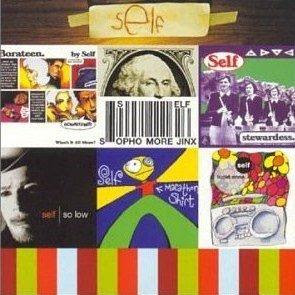 Before I heard "He War," Cat Power was just another of the cryptic names that Cerveza had tossed out at me, a Cat Power here hard to distinguish from a Hot Snake there or a Beehive and a Barracuda over in the other direction. The names can get overwhelming, all the animals mix me up.
Before I heard "He War," Cat Power was just another of the cryptic names that Cerveza had tossed out at me, a Cat Power here hard to distinguish from a Hot Snake there or a Beehive and a Barracuda over in the other direction. The names can get overwhelming, all the animals mix me up.But any confusion I may have had ended when I first heard "He War." Amazon, back when they still offered a free download or two, had made the song available, and I found it upon first listen quite simply stunning, powerful in so many ways as the husky rhythm guitar slides forward, the bell-like fills in tow, with the pretty piano flourishes in the spaces between, with Dave Grohl's regimented drumming pounding the idea into our heads that this song is all about rhythm. Not beat, but these odd multilayered levels of rhythm, if you get me, and on top of it all, Chan Marshall's rich, expressive voice blended with itself like a red wine or something, notes of sour cherry, chocolate, tobacco, and a coy wistfulness.
AMG has Cat Power's music filed under the label sadcore, and for the most part, OK, but the mood in "He War" is not sad or downbeat at all. It's pretty joyous actually, with just a touch of that wistfulness mixed in, maybe at 1:58, when the compressed voiceover about not being the hot new chick comes in.
The lyrics are purposely obtuse I think, but I get a release in keeping with the album's title, a gal who didn't want to be all that to a guy who wasn't all that much anyway, and whatever he might have done for you, now he's split, your needle broke his back and you are free. Hey hey hey.
A long time ago I read a review or a press kit or something for Sonic Youth's EVOL, which talked about how SY's 1986 album collected songs of "vison and power." It was true, too. Every once and a while since then, I've come across music that also merits that highest of praise, that meets this standard I've somehow set, a song or an album that hits you in the gut while also stimulating the higher processes. You Are Free is some of this music, and some of the best this decade has yet offered up.

As far as I'm concerned, the jury is still out on Cat Power's ongoing Memphis phase. She has the voice to carry it off, for sure, but where's the innovation, where's the chop or the verse or the riff that you've just never heard before? "He War" (and almost all of You Are Free) demonstrate that Cat Power, for all the sultry smoke in her voice, is at her best when extending herself beyond the Stax/Volt traditional songbook, into places where the vision and the power of her songwriting can display themselves.
Cat Power - You Are Free - 7 - He War.mp3
128 kbps mp3, up for six weeks (Right click and save as target)
File under: Gladcore


























